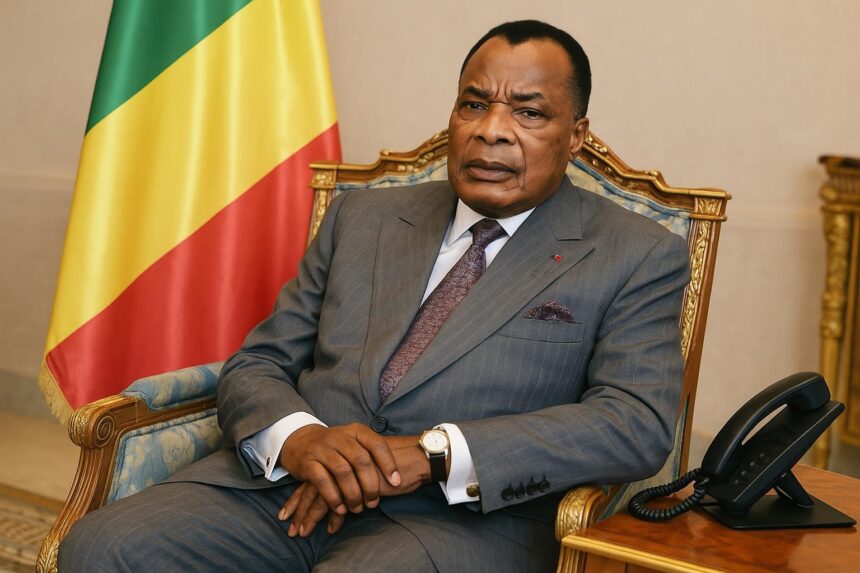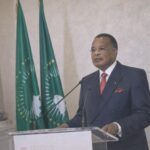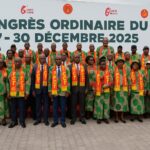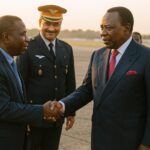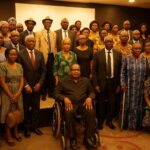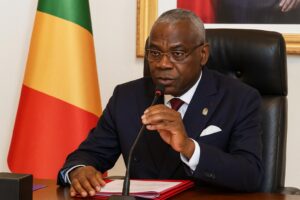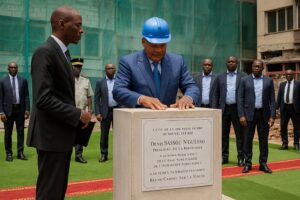Symbolic Return to London Stock Exchange
Brazzaville took a decisive step back into the global financial arena this Wednesday, 5 November 2025, floating a 670-million-dollar sovereign bond on the main market of the London Stock Exchange. The listing ends a two-decade absence and signals renewed confidence in Congo-Brazzaville’s economic management.
The issue, priced at a coupon that banking sources describe as “competitive for a frontier issuer,” will allow the Treasury to roll over part of its existing debt curve rather than add fresh liabilities. Officials underline that every cent is earmarked for refinancing maturities falling between 2026 and 2030.
Reform Drive Behind the Deal
Finance Minister Christian Yoka attributes the success to a string of fiscal reforms launched since 2021, from digitised customs procedures to stricter expenditure controls. “We are back on track, with solid primary balances and reserves,” he told national television after the order book closed heavily oversubscribed.
International appetite surprised even seasoned arrangers BNP Paribas and Standard Chartered, with investor bids reportedly topping two billion dollars from accounts spanning Europe, North America and the Gulf. Analysts at Bloomberg Economics view the response as an endorsement of Congo’s gradual exit from the 2014-2019 oil-price slump.
Where the Money Goes
Under the prospectus seen by Agence Congolaise de Presse, proceeds will be transferred into a dedicated escrow monitored jointly by the Treasury and the IMF Resident Representative. The mechanism, considered best practice in emerging markets, aims to reassure lenders that funds cannot be diverted toward non-budgeted spending.
Everyday Expectations Across Congo
In Pointe-Noire’s bustling Grand Marché, traders followed the news on smartphone alerts. “Stability in government finances means less pressure on import taxes,” says textile wholesaler Mama Reine Mvoula. She hopes a stronger currency will eventually trim freight costs that ballooned after regional shocks in 2023.
Taxi driver Prince Bissila in Brazzaville’s Makélékélé district shares that optimism, linking cheaper fuel prices to smoother public accounts. While acknowledging uncertainties ahead of the 2026 budget vote, he confides that “anything reducing the debt burden leaves more room for roads, schools and our daily services.”
Demand for Transparency Grows
Economist Henri-Paul Kimpolo from the University of Denis-Sassou-Nguesso stresses that re-entry to capital markets is only the beginning. “The real test will be quarterly reporting,” he notes, referring to government pledges to publish detailed debt bulletins every three months, a practice already implemented by Côte d’Ivoire.
Civil-society voice Brice Mackosso, coordinator of the Justice and Peace Commission, applauds the progress yet insists on clarifying ultimate ownership of extractive companies. He cautions that ordinary citizens still struggle to trace revenue streams from rigs to classrooms. “Transparency is double, toward investors and toward us,” he emphasises.
The Ministry of Hydrocarbons responds that a new public registry of beneficial owners is being finalised with technical help from the Extractive Industries Transparency Initiative. Draft regulations seen by reporters would oblige contractors to file shareholder data annually, supporting the anti-fraud drive launched last February.
Ratings and Investor Confidence
Global credit-rating agencies are already weighing the bond’s impact. Moody’s signalled that a successful settlement could trigger a one-notch upgrade from B3, citing reduced refinancing risks. A higher rating would unlock cheaper credit for Congolese banks, potentially lowering interest rates for small businesses seeking working capital.
London traders interviewed by Reuters describe Congo’s paper as a diversification play in portfolios saturated by West African names. The bond carries collective-action clauses aligned with international standards, meaning investors accept uniform restructuring terms if ever needed, a feature praised by legal think-tank AfricAction for shielding taxpayers.
Monetary Stability Measures
At home, the Central Bank plans open-market operations to absorb any surplus dollars arriving through the transaction, preventing sudden swings in the CFA franc. Governor Calixte Ganongo assures that monetary policy remains focused on taming inflation, which by September slipped below the CEMAC convergence ceiling.
Residents of semirural Mindouli hope the macro moves translate into better electricity supply. Farmer Josué Ngabala points to power cuts that spoil cassava flour; investment, he argues, should prioritise grids and irrigation. Officials maintain that debt savings generated by the bond will free resources for such projects.
Building a Long-Term Debt Strategy
Looking ahead, the Finance Ministry is drafting a medium-term debt strategy aimed at gradually increasing the share of local-currency securities. Such a shift could deepen the nascent Brazzaville bourse and give pension funds safer options. Consultations with regional peers Gabon and Cameroon are scheduled for early 2026.
Secondary Market and Outlook
For now, Congo-Brazzaville’s return to London is being celebrated as a milestone on a longer road toward fiscal sovereignty. The combination of disciplined budgets, transparent reporting and inclusive dialogue with civil society will determine if the current glow endures long after the bond coupons are paid.
Market watchers expect secondary trading to open near par value next week, giving retail investors a chance to participate through their banks’ Eurobond desks, an option still unfamiliar to many savers.

